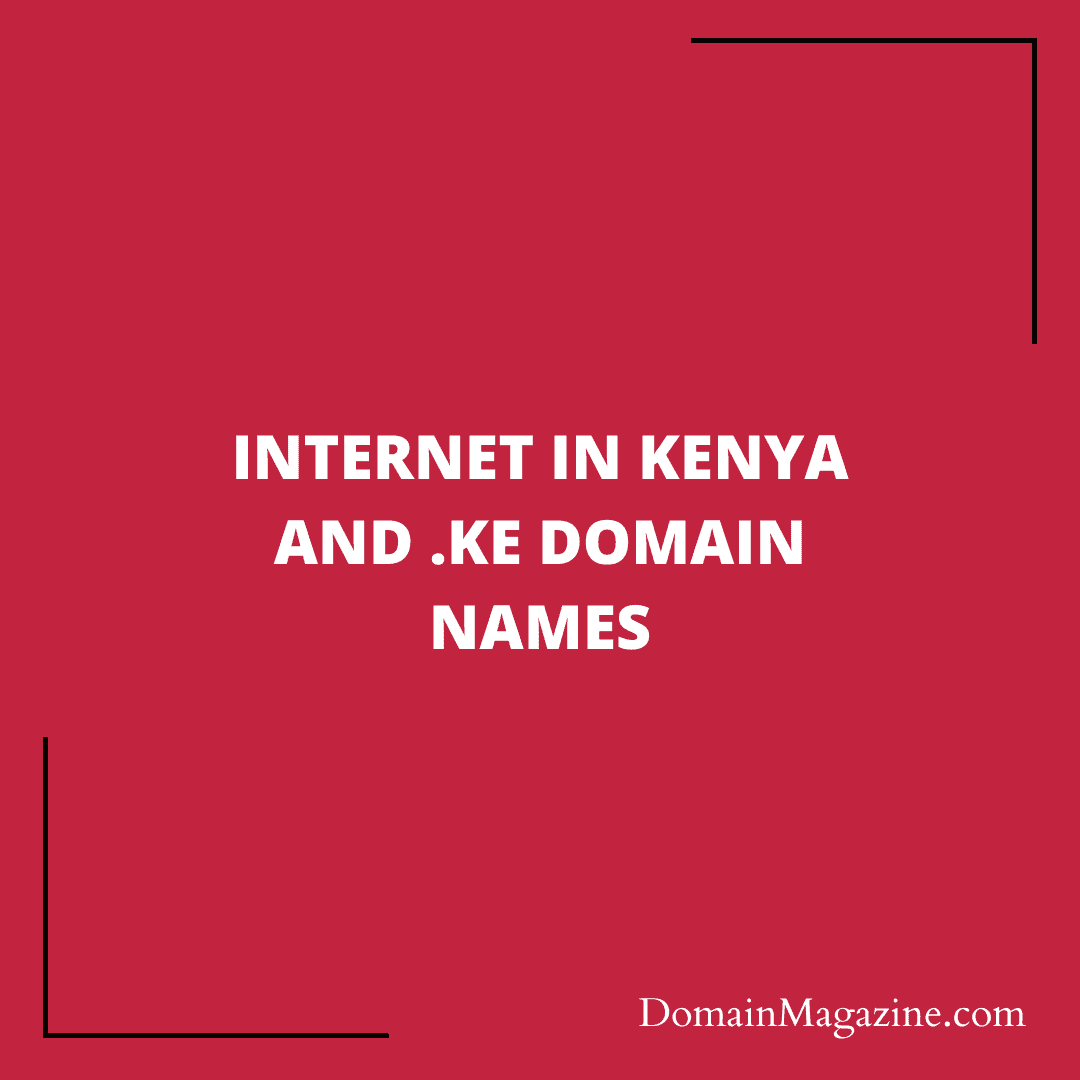Business Daily Africa recently conducted an interview with Mr. Geoffrey Shimanyula, the chairman of Kenya Network Information Centre (KeNIC). Mr. Shimanyula talked in detail about the current situation of .ke domain names, the effect of pandemic on it and how the extension is going to contribute towards the development of the African Nation.

.ke and KeNIC
.ke is the ccTLD of the Republic of Kenya. Along with second level domain name registrations for .ke, several other Third-level domain names are up for registration as well. These extensions include .co.ke, .or.ke, .ne.ke, .go.ke, .ac.ke, .sc.ke, .me.ke, .mobi.ke and .info.ke.
KeNIC (Kenya Network Information Centre) is the apex body entitled with the management and administration of .ke domain names. KeNIC is composed of four constituent bodies that are Technology Service Providers of Kenya (TESPOK), Domain-Name Registrar Association of Kenya (DRAKE), Kenya Education Network Trust (KENET) and the ICT Authority (ICTA).
Last year, KeNIC completed the 20th year in service of this extension.
Performance of .ke domain names

Mr. Shimanyula claimed that in November last year, the ccTLD crossed over 100,000 registrations. As of now the official website of KeNIC mentions 102775 domain name registrations and 103 registrars.
Among the other African peers, .ke stands third. South Africa’s .za is the most popular African ccTLD with Nigeria’s .ng taking the second spot. .ze has been the most popular African extension for a long time and with over a million domain name registrations reigns the top spot undisputedly. However with Nigeria, its population size gives a big advantage over Kenya in the number of domain name registrations. Nigeria’s population is more than Quadruple of Kenya’s.
In fact a 2017 report, ranked Kenya’s extension above Nigerian one.
Effect of the Pandemic
Mr. Shimanyula presented the covid effect on the extension as a ‘Win-Lose situation’. He claims that although several new domain names were up and running, a substantial number of existing operations came to a halt.
However, he did point to the positive changes that the pandemic brought. Among the various hindrances in the growth of .ke, a major one was the one of the renewals. Many of the domain names that were registered didn’t end up in active functioning websites earlier. Many times the domain names were used for only email purposes.
However, after the pandemic domain names did promulgate into full fledged websites. Not only did the Websites were up, they were running and constant financial transactions took place. This induced major confidence in the digital sector of Nigeria.
Digital Kenya
It is the vision of KeNIC to make Kenya’s economy a digital one. And in order to support that, they are discussing a provision that ensures that every new registered business must have an Official Website.
On the question of monetary baggage on businesses, the Chairman pointed out how a .ke domain name would be far more cheaper than a P.O. Box Address. Adding to the fact that the present instant communication mediums are making P.O. Box Addresses are obsolete anyway. Mr. Shimanyula stressed on the need to make a Digital Kenya and how .ke domain names could be a vector for it.

Kenya’s 55.60 million strong population has an internet penetration of 42%. A unique feature of the Republic is its rural-urban divide. 29% of Kenyans live in the Urban Areas, and are also the earlier adopters of Digital Commerce.
Growth in major developing countries follow the same path where initially a certain section of the populace gets introduced to the new technologies. Slowly the adoption of the digital media percolates and reaches more and more hands in the region.
Last year, Kenya was chosen as one of the two countries where ICANN will establish a root server. You can read this news in detail here.


Join the Discussion